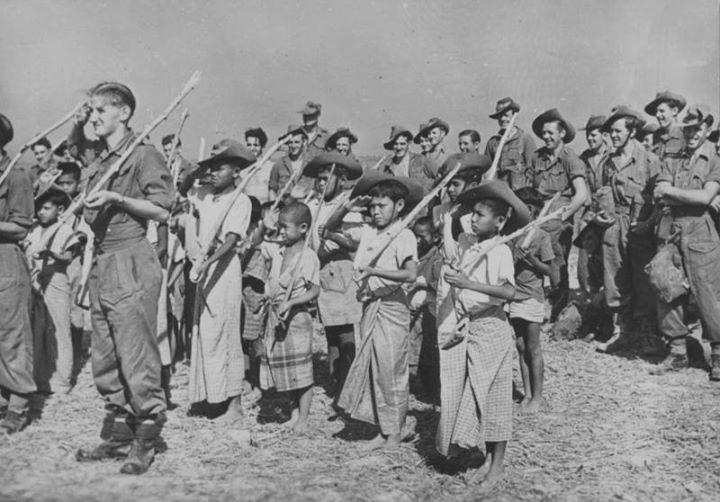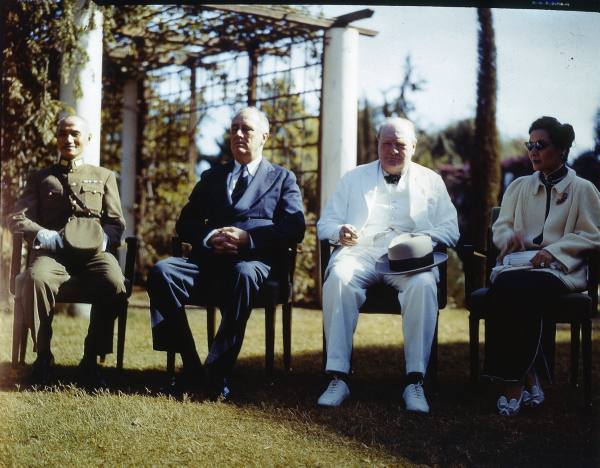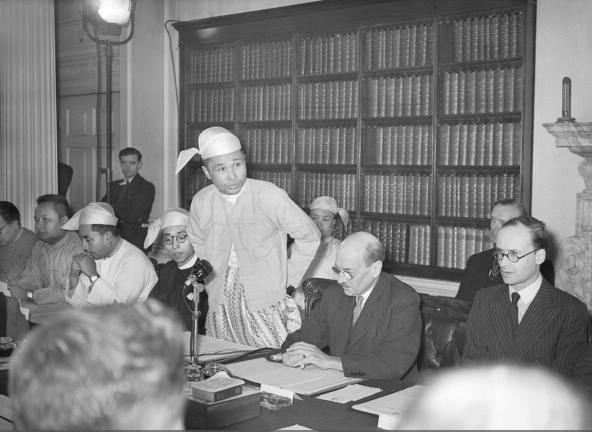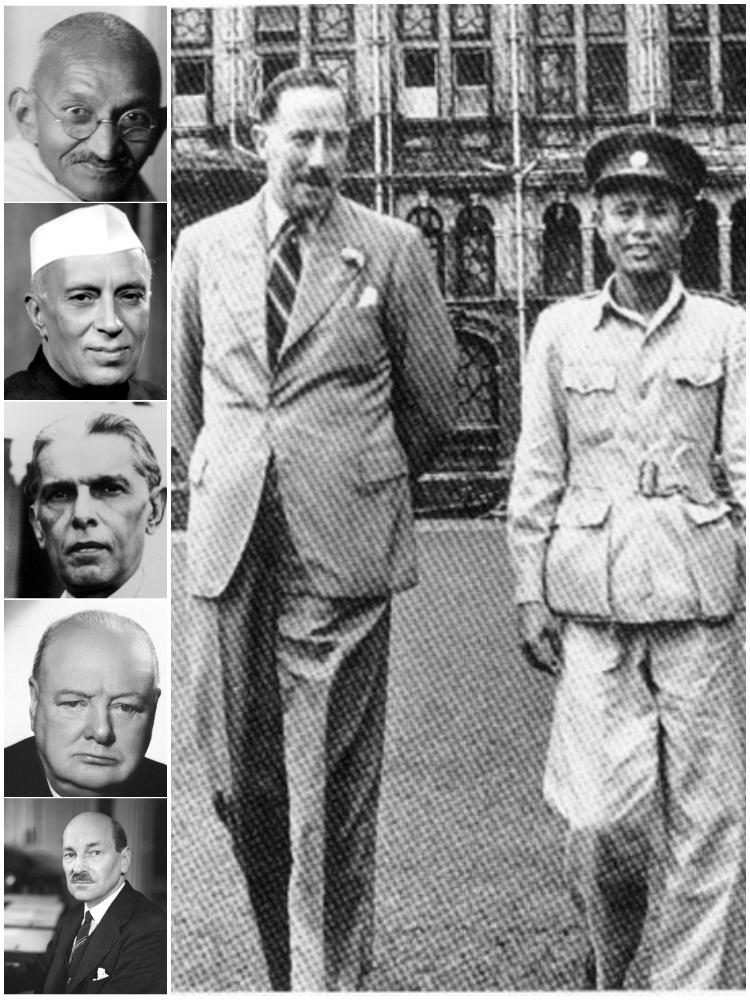Winston Churchill
When Australia changed Burmese history
On 23 December 1941, the Japanese army began the aerial bombing of Rangoon, then crossed the border from Thailand by land, seizing Moulmein at the end of January. On 15 February, Singapore - Britain's "impregnable" fortress in the Far East - fell, and 80,000 Allied troops were captured. On 19 February, the Australian town of Darwin was bombed by the Japanese. By late February, the Japanese 15th Army was fast approaching Rangoon, defeating the 17th Indian Division, and crossing the Sittang...
Read MoreCairo Conference
This photograph shows Allied leaders US President Franklin Roosevelt, British Prime Minister Winston Churchill, and China's Generalissimo Chiang Kai-shek discussing the reconquest of Burma at their summit in Cairo. Also at the conference were Madame Chiang Kai-shek (far right in this photo), the new Allied Supreme Commander for South East Asia, Lord Louis Mountbatten, and his deputy General Joseph "Vinegar Joe" Stillwell. The Chinese pressed for an aggressive invasion of Burma (by British, Indian, and American as well as Chinese...
Read MoreLabour Party's Election Victory changed Burma's History
In July 1945, the Labour Party in the UK won a landslide victory over the Conservatives and Clement Attlee replaced Sir Winston Churchill as Prime Minister. Labour's election victory without a doubt changed the course of Burma's history. Prime Minister Attlee was committed to decolonization and within a year reversed earlier policies and began moves towards Burmese self-determination. By 1949, the Attlee government had granted independence to India, Pakistan, Burma and Ceylon. Attlee had visited Burma twice in the 1920s...
Read MoreUK's decision to quit Burma
On 20 December 1946, UK Prime Minister Clement Attlee informed the House of Commons of his government's intention "to hasten forward the time when Burma shall realize her independence, either within or without the Commonwealth". In other words, the UK had decided to quit Burma. Clement Attlee's Labour government were coping with severe and mounting economic challenges at home, and facing dire emergencies in India, Palestine, and Greece. Communal violence in India would soon claim the lives of millions. Palestine...
Read More


